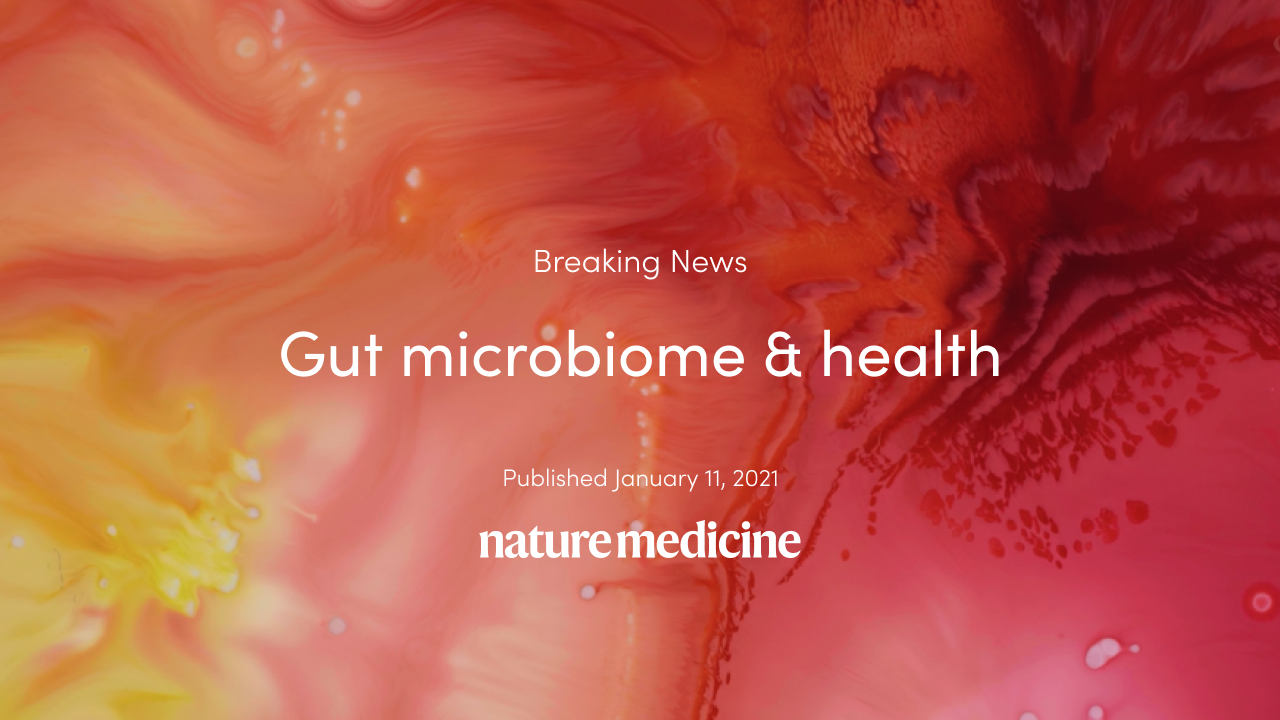January 11, 2021
•

Our latest research, conducted alongside leading scientists from King’s College London, the Harvard T.H. Chan School of Public Health, Massachusetts General Hospital (MGH), and the University of Trento, were published in the prestigious journal Nature Medicine today.
For the first time, we have found a group of 15 “good” and 15 “bad” gut microbes that are linked to better or worse health, including inflammation, blood sugar control and weight.
There are trillions of bacteria in your gut, and many have their own complex interactions with your food, metabolism, and health. Until now, we have lacked large-scale, detailed studies to unravel the connections between them.
This is where our research comes in. Bringing together in-depth microbiome data, detailed dietary analysis, post-meal nutritional responses, and cardiometabolic markers, our landmark PREDICT 1 study has allowed us to study the gut microbiome and diet at a scale and resolution that has not been possible before.
For the first time ever, we have identified two clear sets of microbial species that are consistently associated with healthy metabolic markers and responses after eating (“good” bugs) and unhealthy responses to food, poorer heart health markers, and weight (“bad” bugs).
For example, our findings reveal that having a microbiome rich in Prevotella copri and Blastocystis species was associated with healthier blood sugar responses after eating a meal. Other species, such as Eubacterium eligens and Roseburia sp. CAG:182, were linked to lower post-meal levels of blood fats and markers of inflammation.
Surprisingly, the microbiome has a greater association with these markers than other factors, such as genetics. This is exciting because it suggests that we have more control over our health and weight than we think, and are not prisoners of our genes!
“We were surprised to see such large, clear groups of what we informally call ‘good’ and ‘bad’ microbes emerging from our analysis,” affirmed Nicola Segata, Ph.D., professor and principal investigator of the Computational Metagenomics Lab at the University of Trento, Italy and leader of the microbiome analysis in the study.
“It is also exciting to see that microbiologists know so little about many of these microbes that they are not even named yet. This is now a big area of focus for us, as we believe they may open new insights in the future into how we could use the gut microbiome as a modifiable target to improve human metabolism and health.”
Want to discover whether you have the “good” bugs? Learn what ZOE’s evaluation of your body could do for you.
Diet is known to influence the composition of the human gut microbiome.
Professor Tim Spector, Epidemiologist from King’s College London and scientific founder of ZOE explains:
“When you eat, you’re not just nourishing your body, you’re feeding the trillions of microbes that live inside your gut.”
However, until now we have lacked large-scale, high-resolution studies linking these outcomes to individual microbes or to the specific foods we eat.
Now, for the first time, we have discovered strong associations between the makeup of an individual’s gut microbiome—more specifically, the presence or absence of “good” and “bad” species—with specific nutrients, foods, food groups, and overall dietary pattern.
Dr. Sarah Berry, Reader in Nutrition Sciences at King’s College London and lead nutritional scientist at ZOE shares:
“As a nutritional scientist, finding novel microbes that are linked to specific foods, as well as metabolic health, is exciting. Given the highly personalized composition of each individuals’ microbiome, our research suggests that we may be able to modify our gut microbiome to optimize our health by choosing the best foods for our unique biology.”
We found that those who ate a diet rich in less processed (“healthy”) plant-based foods were more likely to have high levels of “good” gut microbes. Notably, these same “good” gut microbes were also seen in those with diets rich in "healthy" animal-based foods (e.g. oily fish, eggs, yogurt).
Conversely, diets containing more highly processed plant-based foods were more likely to be associated with “bad” gut microbes, as were diets containing less healthy animal-based foods.
These findings highlight the importance of food quality.
When we look at the gut microbiome at a strain level, it’s clear that no two people have exactly the same bugs living in their gut.
The unique nature of the gut microbiome, combined with the fact that each of us can experience very different blood fat and blood sugar responses after meals, means that there really is no "one-size-fits-all “best” diet that works for everyone.
The good news is that our findings point to the gut microbiome as a key target that can be modified through diet to improve our health.
“I am very excited that we have been able to translate this cutting edge science into an at-home test in the time it has taken for the research to be peer-reviewed and published,” says Prof. Tim Spector. “Through ZOE, we can now offer the public an opportunity to discover which of these microbes they have living in their gut.”
After taking ZOE’s at-home test, you will discover which of these “good” and “bad” microbes live in your gut. Your personalized gut health report will include a Microbiome Health Score™ and the prevalence of specific bacteria (15 “good” and 15 “bad”), along with a list of personalized gut boosters (foods that will support the growth of good bacteria) and gut suppressors (foods to limit to reduce bad bacteria).
Using machine learning, we will also share your personalized recommendations for what to eat, based on your own blood fat and blood sugar control, in real-time through our app.